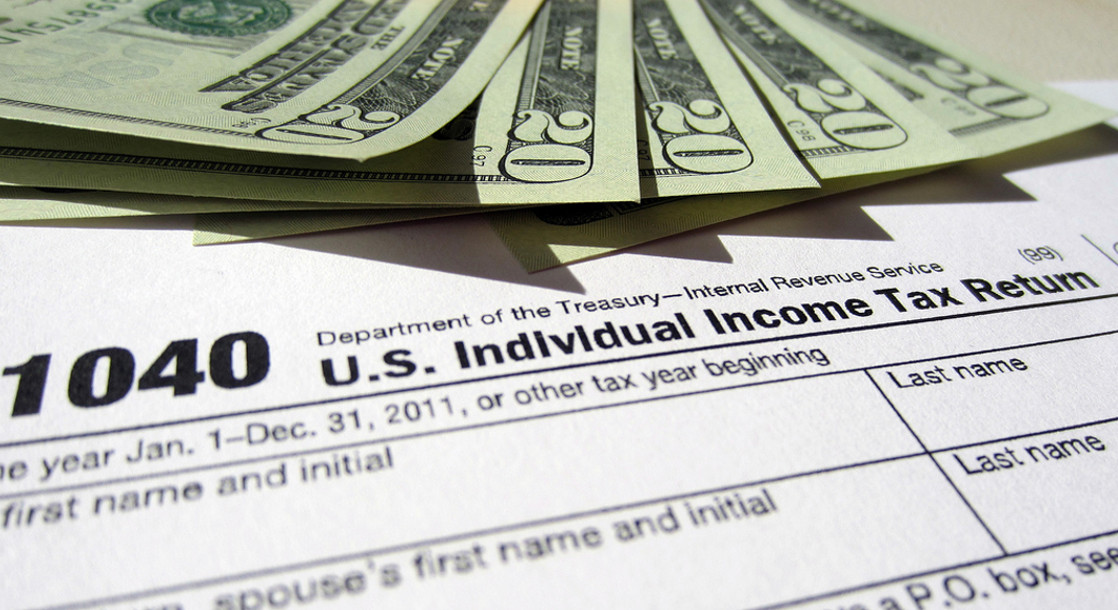Photo via 401(K) 2012
The GOP's tax reform bill may be terrible news for the majority of Americans, but there could be a silver lining for the cannabis industry, according to political strategist Bradley Tusk. In a recent op-ed at CNBC, Tusk writes that the new bill's elimination of the state and local tax deduction (SALT) may give states more incentive to legalize cannabis — and even other recreational drugs — in order to make up for the cut in revenue that this reform could likely bring.
The SALT deduction allows taxpayers to deduct the cost of state and local tax payments from their federal taxes. Experts project that eliminating this deducation will cause federal taxes for residents of high-tax (and predominately liberal) states like New York and New Jersey to increase by 7 or 8 percent. Tusk predicts that some residents, in order to avoid paying increased federal taxes, will move to states or cities with lower income taxes, or simply tighten their belts and spend less money. Both of these consequences would hurt local economies, as well as decrease local and state tax revenue.
Tusk describes the recent spread of legal gambling as a possible model for the expansion of recreational drug legalization. Casinos were once prohibited in the majority of states, but one-by-one, the lure of high tax revenues on legal gambling and the economic boost of gambling-themed tourism convinced 40 states to legalize gambling in some form. Tusk notes that when one state legalizes gambling, its neighboring states are more likely to legalize, in order to prevent its residents from spending their cash over state lines.
“The elimination of SALT is going to do the same thing for recreational drugs,” Tusk wrote. For example, the impending legalization of recreational cannabis use in New Jersey will put a lot of pressure on New York to legalize. The need to cover the loss in revenue stemming from the new tax reform bill will put additional pressure on states to consider legalization as a revenue-generating venture.
Colorado has already collected half a billion dollars in cannabis tax revenue since 2014, and Oregon collected over $100 million in just the first eight months of 2017. Washington State expects to see their cannabis tax revenue grow to $233 million, and California's recreational taxes are expected to bring the state a similarly sized windfall next year. These figures have even turned the heads of politicians who were formerly opposed to legalization, like Colorado Gov. John Hickenlooper.
More suprisingly, Tusk predicts that states may even consider legalizing other recreational drugs in order to boost revenues, which could eventually force the federal government to reclassify its drug scheduling, laws, and penalties. Tusk notes the irony that when the GOP leadership was “sitting around laughing about how they could finance tax cuts and punish blue states at the same time, you can bet they didn't think they were also creating an express lane to legalize a host of recreational drugs.”











